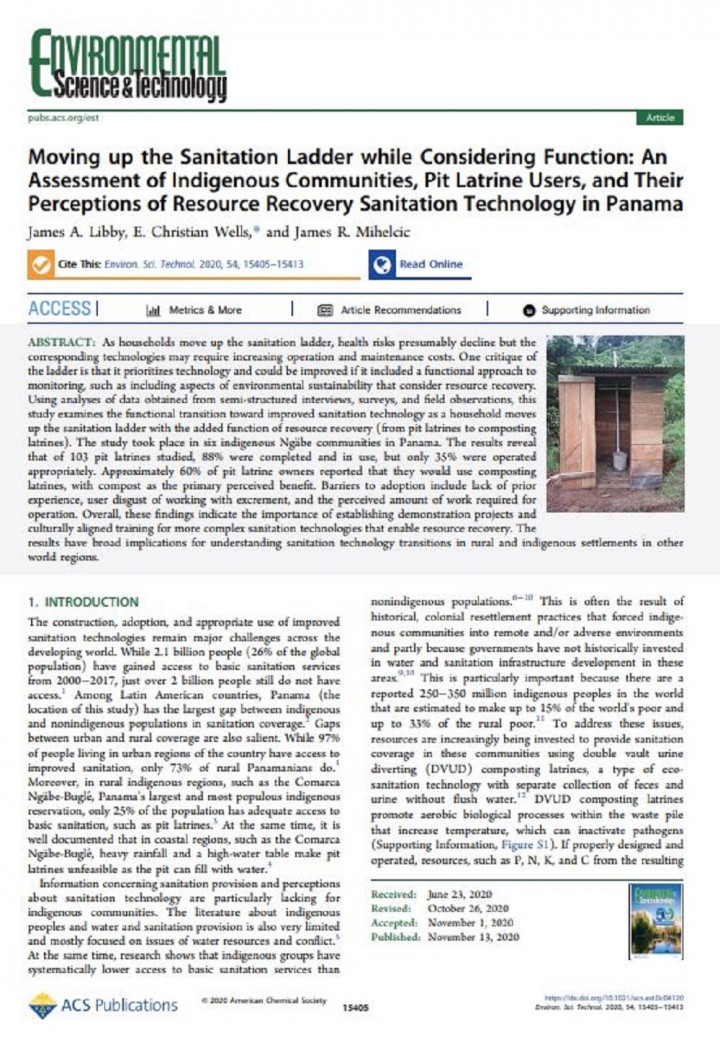Moving up the Sanitation Ladder while Considering Function: An Assessment of Indigenous Communities, Pit Latrine Users, and Their Perceptions of Resource Recovery Sanitation Technology in Panama
Libby, J. A., Wells, E. C., & Mihelcic, J. R. (2020)

Published in: 2020
Pages: 9
Publisher:
Environmental Science & Technology, 54(23), 15405-15413.
Author:
Libby, J. A., Wells, E. C., & Mihelcic, J. R.
Uploaded by:
SuSanA Admin
Partner profile:
common upload
633 Views
5 Downloads
As households move up the sanitation ladder, health risks presumably decline but the corresponding technologies may require increasing operation and maintenance costs. One critique of the ladder is that it prioritizes technology and could be improved if it included a functional approach to monitoring, such as including aspects of environmental sustainability that consider resource recovery. Using analyses of data obtained from semi-structured interviews, surveys, and field observations, this study examines the functional transition toward improved sanitation technology as a household moves up the sanitation ladder with the added function of resource recovery (from pit latrines to composting latrines). The study took place in six indigenous Ngäbe communities in Panama. The results reveal that of 103 pit latrines studied, 88% were completed and in use, but only 35% were operated appropriately. Approximately 60% of pit latrine owners reported that they would use composting latrines, with compost as the primary perceived benefit. Barriers to adoption include lack of prior experience, user disgust of working with excrement, and the perceived amount of work required for operation. Overall, these findings indicate the importance of establishing demonstration projects and culturally aligned training for more complex sanitation technologies that enable resource recovery. The results have broad implications for understanding sanitation technology transitions in rural and indigenous settlements in other world regions.
Bibliographic information
Libby, J. A., Wells, E. C., & Mihelcic, J. R. (2020). Moving up the Sanitation Ladder while Considering Function: An Assessment of Indigenous Communities, Pit Latrine Users, and Their Perceptions of Resource Recovery Sanitation Technology in Panama. Environmental Science & Technology, 54(23), 15405-15413.














